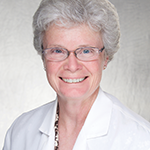
Piyaset / shutterstock.com
Retirement is not always the closing chapter of a long career. For some rheumatologists, it’s the start of new, fulfilling storylines.
“I never thought I wouldn’t practice medicine until I was physically unable to do it anymore,” says Harry Gewanter, MD, who retired from his Richmond, Va., pediatric rheumatology practice two years ago. Dr. Gewanter now sleeps more, spends undistracted time with his family and reads books. He also serves as chair of RheumPAC, the ACR’s nonpartisan political action committee, is immediate past chair of the nonprofit Alliance for Safe Biologic Medicines (ASBM) and is cofounder and medical director of Medical Home Plus, another nonprofit advocacy group focused on families of children with disabilities. “My rationalization about retiring is that I would stop doing individual pediatric rheumatology and start doing societal pediatric rheumatology,” he says.
Dr. Gewanter is one of a group of ACR Masters—a high honor bestowed on rheumatologists 65 or older who have made outstanding contributions to the organization and their field—who embrace post-career roles as advocates, mentors and volunteers or take on long-delayed passion projects. After decades of hard work and immense responsibility in clinical practice, clinical research or academia, retirement allows them to shift gears.
Retirement will likely take a toll on the number of clinicians available to treat a rising patient population, according to the ACR/ARHP’s 2015 Workforce Study.1 By 2030, 60% of adult rheumatologists and 42% of pediatric rheumatologists practicing now may retire, according to the study’s prediction.
When and how to retire is a personal decision for each rheumatologist, says Graciela S. Alarcón, MD, MPH, Jane Knight Lowe Chair of Medicine in Rheumatology, Emeritus, at the University of Alabama at Birmingham (UAB) School of Medicine, who retired nearly 10 years ago.
“Maybe it’s just the right time, or some people may have a disability,” she says from her home in Lima, Peru. “I retired from my role as active faculty for a number of reasons, including family. I had worked long hours and long days for many years, of course. It was time. I loved what I was doing, but on the other hand, I had other things I wanted to do.” She spends summers in California to help take care of some of her grandchildren while her daughter is at work.
Dr. Alarcón says rheumatologists considering retirement soon should take time to formulate a plan for their new lives, especially if they want to stay involved in their field in some way, as she has done with mentorship and involvement with lupus research groups. “If you don’t have a plan, you can fall into a vacuum. I’ve struck a good balance,” she says.
A Gradual Transition
Mentorship allows retired rheumatologists to reduce their workload but remain involved, says Dr. Alarcón. In retirement, she serves as an adviser to the Grupo Latino Americo De Estudio del Lupus (GLADEL), is involved in the Systemic Lupus International Coordinating Clinics (SLICC) research group and serves as a paid adviser to the Lupus Clinical Trials Consortium, a nonprofit organization that supports clinical research on lupus.

